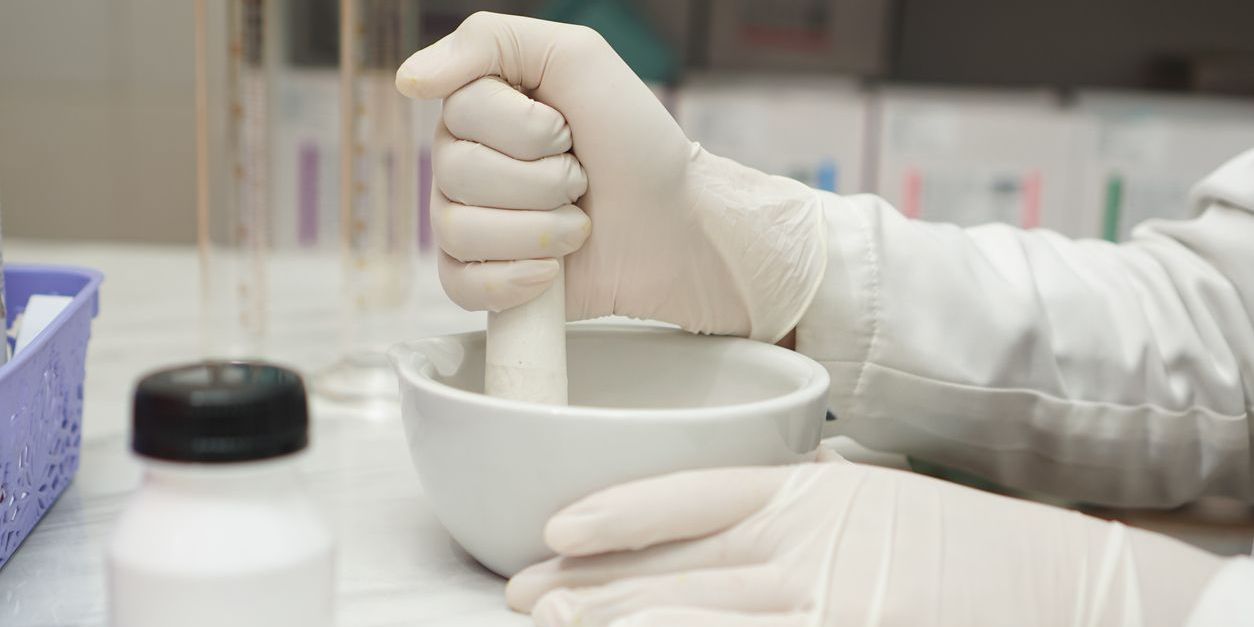What is a Compounding Pharmacist?
A compounding pharmacist is a specially trained pharmacist who makes custom medications for patients. Instead of relying only on mass-produced drugs, they mix, combine, or adjust ingredients to create medicine that’s tailored to a person’s specific needs. This might mean changing a dosage, making a medication easier to take, or creating a form that’s not commercially available. Compounding pharmacists help ensure patients get the exact treatment that works best for them when standard medications aren’t the right fit.
What does a Compounding Pharmacist do?

Duties and Responsibilities
Compounding pharmacists combine or ‘compound’ ingredients to curate prescriptions to better work with individual patient needs. Here’s a look at what they do on a day-to-day basis:
- Prepare Customized Medications – Mix, measure, and combine ingredients to create personalized prescriptions according to physician orders.
- Reformulate Medications – Alter dosage forms (e.g., turning tablets into liquids, creams, or gels) to meet patient needs. This is especially vital for patients with allergies, pediatric or geriatric patients who may have difficulty swallowing pills, or those requiring discontinued or rare medications.
- Remove Allergens or Unwanted Ingredients – Modify medications to exclude allergens, preservatives, dyes, or other problematic components.
- Ensure Quality and Safety – Perform quality control and testing to ensure compounded medications are safe, effective, and meet regulatory standards.
- Maintain Accurate Records – Document compounding procedures, ingredient sources, lot numbers, and patient prescriptions in compliance with regulations.
- Consult Healthcare Providers – Collaborate with doctors, nurses, and other medical professionals to tailor medication formulations.
- Counsel Patients – Provide guidance on the proper use, storage, and potential side effects of compounded medications.
- Manage Inventory – Order, store, and monitor pharmaceutical ingredients to maintain stock and ensure freshness.
- Follow Regulatory Compliance – Adhere to legal and professional standards, including sterile compounding guidelines when applicable.
- Maintain a Clean and Sterile Environment – Ensure the compounding workspace meets hygiene and safety standards to avoid contamination.
- Stay Updated – Keep current with advancements in compounding techniques, regulations, and new pharmaceutical ingredients.
Different Types of Compounding Pharmacists
Compounding pharmacists often distinguish themselves based on the specific area or type of compounding they specialize in:
- Sterile Compounding Pharmacists specialize in preparing sterile medications such as injections, intravenous (IV) drugs, eye drops, and other products that must be free of microbial contamination. This requires working in controlled, sterile environments and following strict protocols.
- Non-Sterile Compounding Pharmacists focus on making medications that do not require sterility, such as creams, ointments, capsules, powders, and oral liquids.
- Pediatric Compounding Pharmacists create formulations suitable for children, often modifying adult medications into easier-to-administer forms like liquids or flavored suspensions.
- Hormone Replacement Therapy (HRT) Compounding Pharmacists specialize in compounding bioidentical hormone therapies for patients requiring hormone adjustments, often for menopause or other hormonal imbalances.
- Pain Management Compounding Pharmacists develop customized topical creams, gels, or other formulations for patients managing chronic pain or requiring specific drug combinations.
- Veterinary Compounding Pharmacists prepare customized medications tailored for animals, adjusting dosage forms and flavors to suit different species and sizes.
Compounding pharmacists have distinct personalities. Think you might match up? Take the free career test to find out if compounding pharmacist is one of your top career matches. Take the free test now Learn more about the career test
What is the workplace of a Compounding Pharmacist like?
Compounding pharmacists are employed by a variety of organizations, including:
- Independent Community Pharmacies – small or specialty pharmacies focus on compounding services
- Hospital Pharmacies – preparing customized medications for inpatients
- Specialty Compounding Pharmacies – businesses dedicated exclusively to compounding medications, serving patients and healthcare providers
- Pharmaceutical Companies – with compounding divisions or provide custom formulation services
- Research Institutions – facilities conducting clinical trials or experimental drug development
- Hospice and Palliative Care Centers – where customized medications help manage symptoms and improve quality of life
- Long-Term Care Facilities – tailoring medications for residents
- Veterinary Pharmacies – specializing in animal medications employ compounding pharmacists for veterinary formulations
The workplace of a compounding pharmacist is usually a clean, well-organized pharmacy designed for making customized medications with care and precision. It’s equipped with special tools like mixers, balances, and sometimes sterile hoods or cleanrooms for preparing medications in a germ-free environment. In some cases, strict controls—such as filtered air, protective gowns, and gloves—are used to make sure the medicine stays safe and uncontaminated.
It’s a setting where attention to detail is essential, and safety rules are always followed. The pace can be calm and steady when making routine prescriptions, but it can also pick up quickly if an urgent order comes in, especially in hospitals. Overall, it’s a professional yet purposeful environment focused on accuracy, safety, and delivering high-quality care to patients.
Frequently Asked Questions
Pharmacy-Related Careers and Degrees
Compounding Pharmacists are also known as:
Formulation Pharmacist
Prescription Compounding Specialist